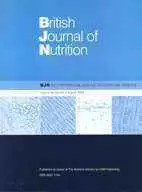Celiac.com 08/06/2014 - Although the role of human digestive proteases in gluten proteins is quite well known, researchers don’t know much about the role of gut bacteria in the metabolism of these proteins. A research team recently set out to explore the diversity of the cultivable human gut microbiome involved in gluten metabolism.
 Their goal was to isolate and characterize human gut bacteria involved in the metabolism of gluten proteins. The team included Alberto Caminero, Alexandra R. Herrán, Esther Nistal, Jenifer Pérez-Andrés, Luis Vaquero, Santiago Vivas, José María G. Ruiz de Morales, Silvia M. Albillos and Javier Casqueiro.
Their goal was to isolate and characterize human gut bacteria involved in the metabolism of gluten proteins. The team included Alberto Caminero, Alexandra R. Herrán, Esther Nistal, Jenifer Pérez-Andrés, Luis Vaquero, Santiago Vivas, José María G. Ruiz de Morales, Silvia M. Albillos and Javier Casqueiro.
Celiac.com Sponsor (A12):
They are variously associated with the Instituto de Biología Molecular, Genómica y Proteómica (INBIOMIC), the Área de Microbiología, Facultad de Biología y Ciencias Ambientales, and the Instituto de Biomedicina (IBIOMED) Campus de Vegazana at the Universidad de León, León, Spain, and with the Departamento de Gastroenterología, Hospital de León, the Departamento de Inmunología y, Hospital de León, and with Instituto de Biotecnología (INBIOTEC) de León all in León, Spain.
For their study, they cultured twenty-two human fecal samples, with gluten as the principal nitrogen source. They also isolated 144 strains from 35 bacterial species potentially involved in gluten metabolism in the human gut. They found 94 strains that metabolise gluten, while 61 strains showed an extracellular proteolytic activity against gluten proteins.
In patients with celiac disease, several strains exhibited peptidasic activity towards the 33-mer peptide, an immune-triggering peptide. Most of the gluten-metabolizing strains belong to the phyla Firmicutes and Actinobacteria, mainly from the genera Lactobacillus, Streptococcus, Staphylococcus, Clostridium and Bifidobacterium.
Their findings show that the human intestine hosts numerous bacteria that can use gluten proteins and peptides for food. These bacteria could have an important role in gluten metabolism and could give rise to new treatments for celiac disease.
Source:
- Open Original Shared Link






Recommended Comments
There are no comments to display.